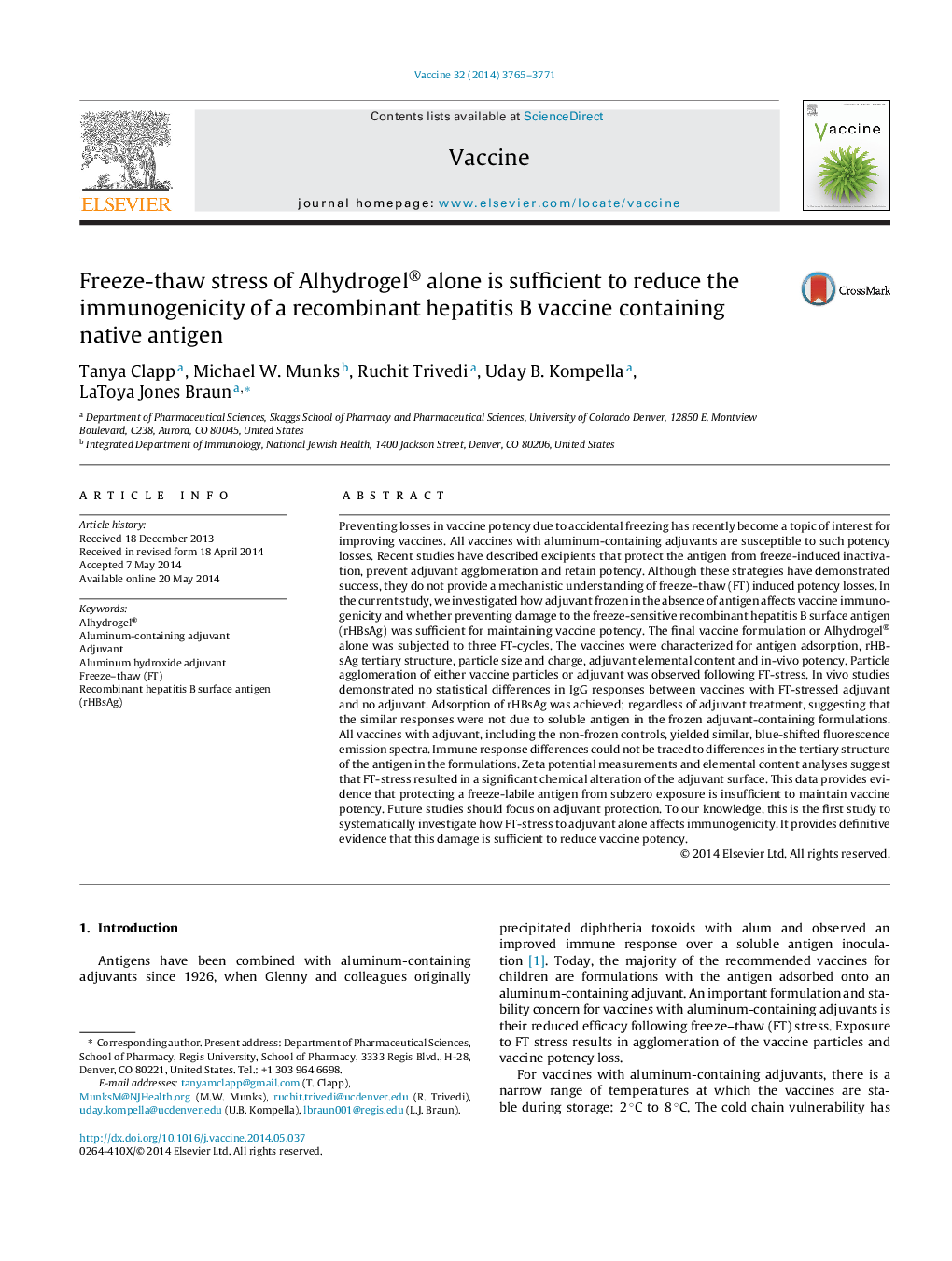| Article ID | Journal | Published Year | Pages | File Type |
|---|---|---|---|---|
| 10964918 | Vaccine | 2014 | 7 Pages |
Abstract
Preventing losses in vaccine potency due to accidental freezing has recently become a topic of interest for improving vaccines. All vaccines with aluminum-containing adjuvants are susceptible to such potency losses. Recent studies have described excipients that protect the antigen from freeze-induced inactivation, prevent adjuvant agglomeration and retain potency. Although these strategies have demonstrated success, they do not provide a mechanistic understanding of freeze-thaw (FT) induced potency losses. In the current study, we investigated how adjuvant frozen in the absence of antigen affects vaccine immunogenicity and whether preventing damage to the freeze-sensitive recombinant hepatitis B surface antigen (rHBsAg) was sufficient for maintaining vaccine potency. The final vaccine formulation or Alhydrogel® alone was subjected to three FT-cycles. The vaccines were characterized for antigen adsorption, rHBsAg tertiary structure, particle size and charge, adjuvant elemental content and in-vivo potency. Particle agglomeration of either vaccine particles or adjuvant was observed following FT-stress. In vivo studies demonstrated no statistical differences in IgG responses between vaccines with FT-stressed adjuvant and no adjuvant. Adsorption of rHBsAg was achieved; regardless of adjuvant treatment, suggesting that the similar responses were not due to soluble antigen in the frozen adjuvant-containing formulations. All vaccines with adjuvant, including the non-frozen controls, yielded similar, blue-shifted fluorescence emission spectra. Immune response differences could not be traced to differences in the tertiary structure of the antigen in the formulations. Zeta potential measurements and elemental content analyses suggest that FT-stress resulted in a significant chemical alteration of the adjuvant surface. This data provides evidence that protecting a freeze-labile antigen from subzero exposure is insufficient to maintain vaccine potency. Future studies should focus on adjuvant protection. To our knowledge, this is the first study to systematically investigate how FT-stress to adjuvant alone affects immunogenicity. It provides definitive evidence that this damage is sufficient to reduce vaccine potency.
Related Topics
Life Sciences
Immunology and Microbiology
Immunology
Authors
Tanya Clapp, Michael W. Munks, Ruchit Trivedi, Uday B. Kompella, LaToya Jones Braun,
